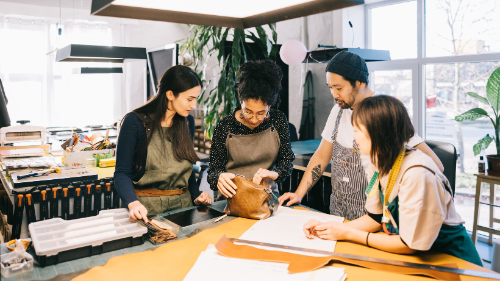When Being “Productive” Becomes an Emotional Trap
We live in a culture that glorifies productivity. Doing more,
achieving more, never stopping. Being someone who “makes the most of their
time” has become a socially admired identity. But behind that constant pressure
to produce, there may be an emotional trap: using productivity as anesthesia to
avoid feeling, as a strategy to escape emptiness, or as a mechanism for
self-validation.
The problem isn’t being productive— it’s needing to be productive
all the time in order to feel worthy. It’s believing that you only deserve rest
if you’ve pushed yourself to the limit. It’s defining yourself by what you do,
not by who you are. And in the long run, that’s exhausting. It wears down the
body, confuses the mind, and disconnects you from genuine desire.
When doing masks the feeling
Many people, without realizing it, use productivity as a form of emotional
avoidance. They fill every minute of the day to avoid thinking, connecting, or
pausing. Because when you stop, difficult questions arise: What do I really want? Am I satisfied with my
life? What do I feel when I’m not doing anything?
This emotional trap often forms in childhood, in environments where
worth was tied to performance: good grades, visible results, achieved goals.
Over time, the belief is internalized that rest equals wasting time, that doing
nothing means failure, that slowing down is weakness. Nothing could be further
from the truth.
In therapy, it’s common to see people who appear successful but are
emotionally disconnected. They’re always doing— but not feeling. Producing— but
not enjoying. They shine on the outside, but inside they’re exhausted, lonely,
or lost.
Reclaiming being beyond doing
Healing this relationship with productivity means questioning the
beliefs that drive your pace of life. When did you start thinking
you had to earn the right to rest? Why is it hard to enjoy something unless
there’s a goal attached? What would happen if you simply stopped?
In therapy, we work on restoring your connection with yourself. Not
so you’ll be “less productive,” but so that your actions come from desire, not
from lack. So that your life is guided not by external approval, but by real
balance between action and presence.
You are not worthy because of how much you do. You are worthy
because you exist. And if your well-being depends on never stopping, maybe what
you need isn’t more doing— but to start listening to yourself.



